I don’t have to tell you how important it is to brush your teeth. It’s something that was likely drilled into your childhood brain by your mom, dentist, and that catchy toothbrushing song from kindergarten and has taken hold in your adult life. But while we’ve always been taught that proper oral hygiene is a necessity for keeping your pearly whites glistening, avoiding cavities, and not scaring away friends and loved ones with bad breath, there’s another reason why you need to be brushing your teeth on the reg: The sake of your gums.
I know, I know—it isn’t exactly the sexiest topic, but it is an important one. The American Dental Association recommends giving your mouth a good scrub down with a toothbrush twice a day and a once-over with floss to keep your teeth clean, which will help you avoid the buildup of plaque and tartar. These “wool sweaters” are packed with bacteria, which can cause gingivitis, an inflammation of the gums, which can lead to more serious gum issues ranging from mild to severe periodontitis. And in case painful, swollen gums (and the potential of loose teeth) wasn’t enough to cause you concern, periodontal diseases have been linked to more serious issues like heart disease, diabetes, and stroke.
While the frequency of your toothbrushing is unquestionably critical (yes, your mom, dentist, and kindergarten teacher were right), there are other factors that also come into play. “Some of the best practices that gets overlooked are how you utilize the toothbrush,” says Lawrence Fung, DDS, founder of Silicon Beach Dental. “It’s not about how hard you brush but rather how efficiently you brush. It’s best to angle the toothbrush with the bristles at a 45-degree angle to the gum line, as if you were sweeping under the gums. You want to roll the brush away from the gum line and avoid a back-and-forth motion as it can cause an accelerated wearing away of the gums, which is one of the major causes for exposed roots called gum recession.” He suggests investing in an electric toothbrush, such as the Quip ($25) or Sonicare Diamond Clean Toothbrush ($200), to do some of the heavy lifting for you.
“Some of the best practices that gets overlooked are how you utilize the toothbrush. It’s not about how hard you brush but rather how efficiently you brush.” —Lawrence Fung, DDS
And of course, the toothbrush itself is only half of the plaque-fighting duo—your toothpaste is also crucial in kicking gum disease’s ass. Dr. Fung notes that an ingredient called triclosan has been proven to fight gum disease, but research suggests that it may be detrimental to the body in certain concentrations. So unless a patient has very, very severe gum disease, he usually seeks out a more natural alternative.
“In my practice for gum disease prevention, it’s more important to clean the gums than to detoxify,” he says. “Removing the plaque layer that accumulates on the teeth surface gets rid of the bacteria that causes gum disease (gingivitis, periodontitis). Because of that, I personally am a big fan of the new Hello Antiplaque and Whitening Toothpaste ($5). Their active soft natural ingredients including tea tree oil and coconut oil are just what we need to help remove the layers of bacteria that cause gum disease eliminating the need to remove the bacteria chemically.”
FWIW, Hello’s products happen to be editor tested and approved. “I’ve tried my fair share of ‘wellnessy toothpastes’ and, honestly, a lot of them either taste like baking soda or I don’t feel really work,” says Well+Good’s Senior Writer Emily Laurence. “I’m really into this one because it works and it’s not too strong or overpowering on my gums, the way I feel some other whitening toothpastes can be. Plus, the tube is so pretty that I purposely leave it out on the sink instead of stashing it in the medicine cabinet.”
And she’s not alone: Other editors chime in that they’re on-board with the cleaner toothpaste options, as well. “I love what Wildist is doing with their toothpaste line,” says W+G Beauty and Fitness Director Ali Finney. “They have a ginger-spiked morning toothpaste and a chamomile-flavored evening option, as well as a works-all-the-time minty fresh tube. Maybe it’s the beauty editor in me, but it’s nice to have different flavors at different times of the day.” When seeking out a natural, gum-treating toothpaste of your own, look for the phrase “anti-plaque” or “plaque-fighting” on the label. Or, use our cheat sheet and test our one of our favorite natural toothpastes for gums.
Best clean toothpastes for gums
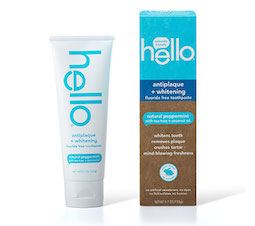
Hello Anti-plaque and Whitening Toothpaste $5
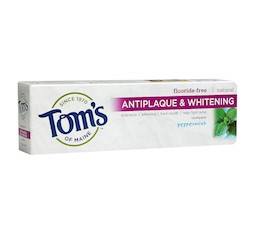
Tom's of Maine Antiplaque and Whitening Peppermint Natural Toothpaste $4
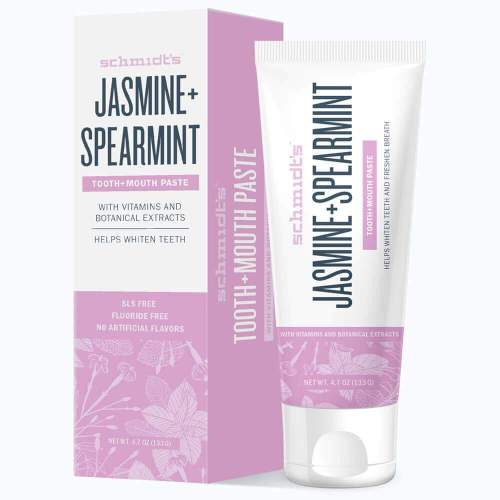
Schmidt's Jasmine & Spearmint Toothpaste $5
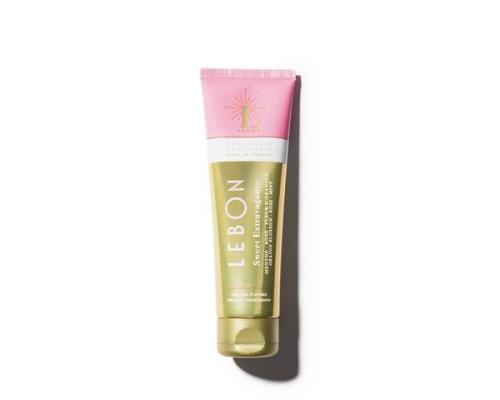
Lebon Sweet Extravagence $22
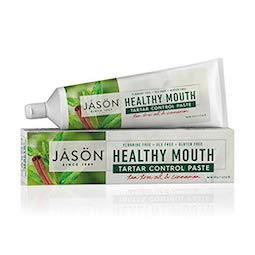
Jason Healthy Mouth Tartar Control Flouride-Free Toothpaste, Tee Tree Oil & Cinnamon $3
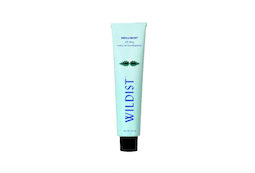
Wildist Brillimint $7
Originally published December 6, 2018; updated on April 6, 2019.
That’s not all you need to know about oral hygiene, though: Here are 6 mistakes you may making with your mouth, and the real reason why — yes — you need to be flossing every day.
Sign up for the Well+Good SHOP Newsletter
Get exclusive deals on wellness, beauty, fitness, and food products that have been hand-picked by our editors.
Got it, you've been added to our email list.









